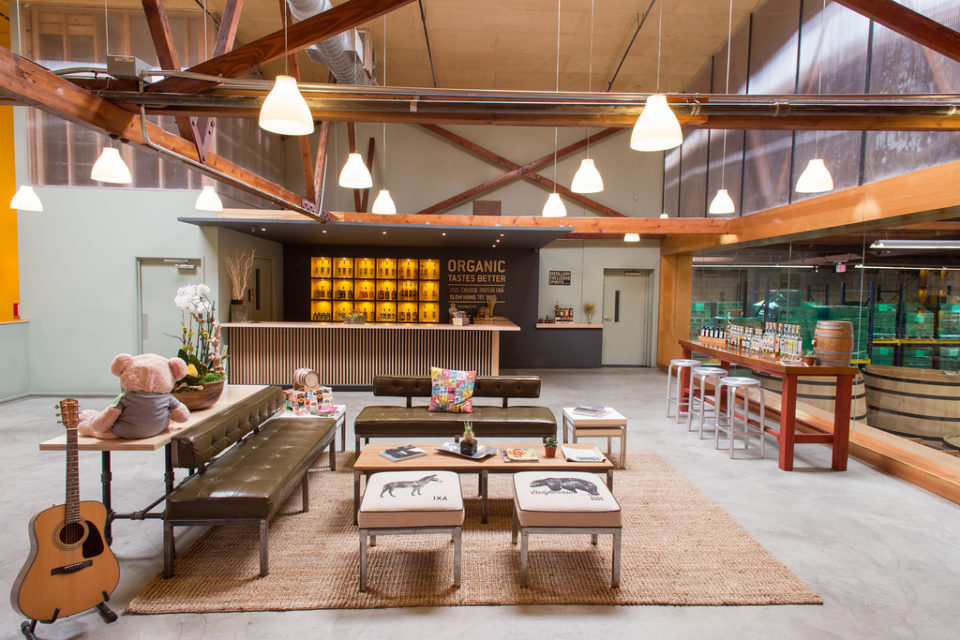4 Trends That Will Shape the Corporate Event Industry in 2017
- Date: March 7, 2017
- Topic: Resources
- By: Ronnie Higgins

As an event organizer, you already have the fifth most stressful job in the world. But on top of all the planning, you also need to keep an eye out for the next big thing that’s wowing audiences.
But what, exactly, should you be looking for? Should you incorporate virtual reality into your next event? What about augmented reality? It’s far too easy to get distracted by flashy new technology, and trends can come and go.
So which event trends should you focus on in 2017 to impress your attendees?
To help you deliver an unforgettable experience and grow your event, these are the top trends that are shaping the industry this year.
1. Livestreaming
Think livestreaming video is too expensive? Think again. Thanks to free tools like Facebook Live, livestreaming is not only affordable — it’s a worthwhile investment with a positive ROI. 30% of people who watch a livestream of an event will attend the same event the following year.
Using your iOS or Android device and the Facebook app, you can “Go Live!” from your Facebook page, event, or group with one tap. It’s that easy! Build anticipation before your event, give attendees a sneak peak before the doors open, or let them catch a glimpse of the behind-the-scene action backstage.
If you want to use Facebook Live to stream the action on stage, consider a camera upgrade. Livestream offers a $400 pocket-sized camera that works flawlessly with Facebook Live and is easy to use.
Even if you do splurge a bit on your livestream, chances are it will return more than you spend. Besides the increase in ticket sales you can expect the next year, there are more ways live video can drive ROI. According to Hubspot, 52% of marketers worldwide named video as the content type with the best ROI.
2. Festivalization of Events
According to David Adler, CEO and Founder of BizBash, business and professional events are starting to look more like Lollapalooza, increasingly adding elements that engage attendees’ senses.
That’s what Google did in 2016, when it moved its flagship event, Google I/O, from San Francisco Premiere conference center, Moscone Center, to the Shoreline Amphitheatre in Mountain View. Google turned this outdoor music venue and its surrounding parking lot into a “village” with 10 enclosed stages and several open-air tents. This showed developers that Google considered them to be artists, not just “code writers,” as Google executive producer Amanda Matuk puts it.
Imagine your attendees catch the keynote address at a nightclub in the morning, attend breakout sessions in open air tents in the afternoon, and network at a cocktail party on a rooftop in the evening. Who needs a convention center when you can give your attendees an unforgettable experience with an unexpected venue?

3. Nontraditional Venue Spaces
As more and more attendees demand one-of-a-kind event experiences, event organizers are beginning to look at the venue as a way to meet their expectations.
In fact, American Express’s 2017 “Global Meetings and Events Forecast” predicts that the demand for unique venues will increase by 3.7% this year, while the demand for traditional spaces will remain relatively flat.
Whether it’s just to host the post-event reception or facilitate breakout sessions, these less conventional spaces will help you serve up the unexpected to attendees. Choosing a unique venue gives attendees something to talk about, and encourages them to share the experience on social media. Imagine attendees on a rooftop loft sharing the view with followers on Instagram, using the event hashtag!
Leveraging innovative venue marketplaces like Peerspace has made it even easier for you to “think outside the ballroom.”
4. Distributed Commerce
If you want to sell more tickets and build a successful business this year, you’ll want to help people find events, buy tickets, and access events in any way they prefer. That’s the idea behind distributed commerce.
When event-goers are able to purchase tickets directly from an event discovery platform — like Facebook or Bandsintown — without ever leaving the page or app, they’re more likely to buy. In fact, each additional step in a checkout process results in a 10% decrease in transactions. With a distributed commerce strategy, you not only reach new potential attendees, you also eliminate the risk of losing interested buyers.
To take advantage of distributed commerce, choose a ticketing and registration provider that allows you to get your events in front of new audiences and allows event-goers to make seamless purchases wherever they discover your event.
Your attendees are your top priority, and with these trends you’ll be on the path to creating memorable live experiences that they’ll want to experience again and again. Wherever 2017 takes you and your event, you’re never alone. Get the latest tips and expert advice for your event.





